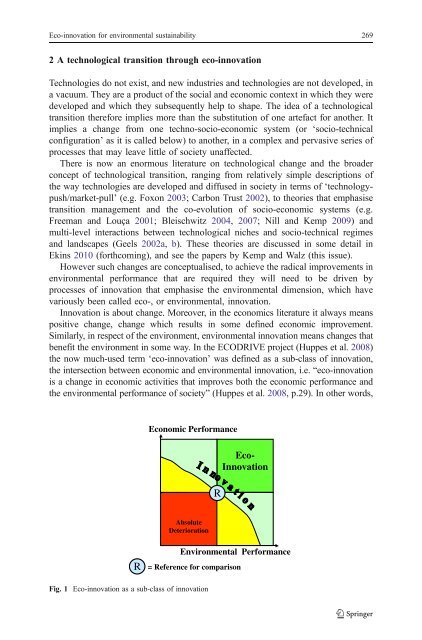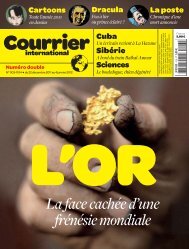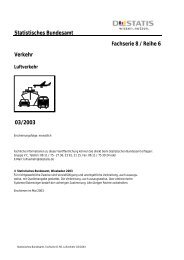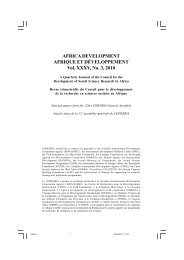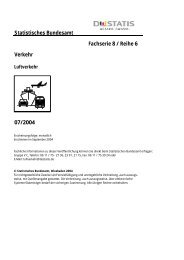The international economics of resources and resource ... - Index of
The international economics of resources and resource ... - Index of
The international economics of resources and resource ... - Index of
You also want an ePaper? Increase the reach of your titles
YUMPU automatically turns print PDFs into web optimized ePapers that Google loves.
Eco-innovation for environmental sustainability 269<br />
2 A technological transition through eco-innovation<br />
Technologies do not exist, <strong>and</strong> new industries <strong>and</strong> technologies are not developed, in<br />
a vacuum. <strong>The</strong>y are a product <strong>of</strong> the social <strong>and</strong> economic context in which they were<br />
developed <strong>and</strong> which they subsequently help to shape. <strong>The</strong> idea <strong>of</strong> a technological<br />
transition therefore implies more than the substitution <strong>of</strong> one artefact for another. It<br />
implies a change from one techno-socio-economic system (or ‘socio-technical<br />
configuration’ as it is called below) to another, in a complex <strong>and</strong> pervasive series <strong>of</strong><br />
processes that may leave little <strong>of</strong> society unaffected.<br />
<strong>The</strong>re is now an enormous literature on technological change <strong>and</strong> the broader<br />
concept <strong>of</strong> technological transition, ranging from relatively simple descriptions <strong>of</strong><br />
the way technologies are developed <strong>and</strong> diffused in society in terms <strong>of</strong> ‘technologypush/market-pull’<br />
(e.g. Foxon 2003; Carbon Trust 2002), to theories that emphasise<br />
transition management <strong>and</strong> the co-evolution <strong>of</strong> socio-economic systems (e.g.<br />
Freeman <strong>and</strong> Louça 2001; Bleischwitz 2004, 2007; Nill <strong>and</strong> Kemp 2009) <strong>and</strong><br />
multi-level interactions between technological niches <strong>and</strong> socio-technical regimes<br />
<strong>and</strong> l<strong>and</strong>scapes (Geels 2002a, b). <strong>The</strong>se theories are discussed in some detail in<br />
Ekins 2010 (forthcoming), <strong>and</strong> see the papers by Kemp <strong>and</strong> Walz (this issue).<br />
However such changes are conceptualised, to achieve the radical improvements in<br />
environmental performance that are required they will need to be driven by<br />
processes <strong>of</strong> innovation that emphasise the environmental dimension, which have<br />
variously been called eco-, or environmental, innovation.<br />
Innovation is about change. Moreover, in the <strong>economics</strong> literature it always means<br />
positive change, change which results in some defined economic improvement.<br />
Similarly, in respect <strong>of</strong> the environment, environmental innovation means changes that<br />
benefit the environment in some way. In the ECODRIVE project (Huppes et al. 2008)<br />
the now much-used term ‘eco-innovation’ was defined as a sub-class <strong>of</strong> innovation,<br />
the intersection between economic <strong>and</strong> environmental innovation, i.e. “eco-innovation<br />
is a change in economic activities that improves both the economic performance <strong>and</strong><br />
the environmental performance <strong>of</strong> society” (Huppes et al. 2008, p.29). In other words,<br />
Economic Performance<br />
Absolute<br />
Deterioration<br />
R<br />
Eco-<br />
Innovation<br />
Environmental Performance<br />
R = Reference for comparison<br />
Fig. 1 Eco-innovation as a sub-class <strong>of</strong> innovation


